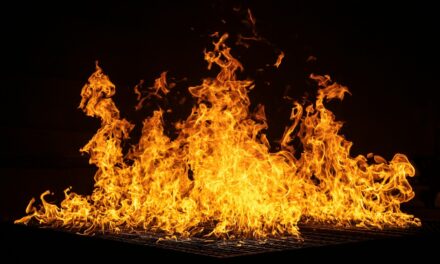Genesis 49:1–33: The Final Blessing of Jacob
Introduction
At the very end of Jacob’s life, the patriarch and father of the nation of Israel has one critical task remaining: to bestow his blessing on his sons. He had given the special, double-portion blessing to Jacob by adopting Ephraim in Manasseh in the previous chapter, but now he must bless all his sons. This blessing will have far-ranging implications for the future of the nation, previewing the inheritance that each tribe will receive and the special characteristics of each tribe. Most of all, however, Jacob is focused on prophesying the tribe of Judah as the tribe from whom God will raise up a perpetual kingship. That kings will come from Judah is not one more detail in a long chapter of blessings, but the center of God’s redemptive plan for his people, and, ultimately, for the whole world. As Jacob blesses his sons, we see that God blesses the world through the King of Israel.
Discussion Questions
1) Why is Reuben, the firstborn, disqualified from being the king over Israel (v. 3–4; cf. Gen. 35:22)? Why are Simeon and Levi, the second and third sons of Jacob, disqualified from being king over Israel (v. 5–7; cf. Gen. 34)? Knowing about Judah’s role in selling Joseph into slavery, and his shameful acts with Tamar, does Judah (the fourth son of Jacob) deserve the kingship (Gen. 37:26–27; 38:12–19)? On what basis, then, does God establish the kingship of Israel with the tribe of Judah?
2) What kinds of blessings does Jacob extend to all his other sons in v. 13–27? What sort of an inheritance will these tribes receive? What sort of characteristics will these tribes exhibit? What kind of future does Jacob prophesy for the nation that will emerge from his family? How does Jacob’s ”blessing” restore the original blessing that God had given to all humanity at the beginning of creation (v. 28; cf. Gen. 1:28)? How does this blessing for Israel extend to the rest of the world?
3) Why does Jacob ask once again to be buried in the land of Canaan? When did the cave in the field at Machpelah come into the possession of Jacob’s family? Who else is buried there? Why does it matter where Jacob is buried? What does Jacob’s burial say about his faith in the promises that God made to him and his fathers before him? What does Jacob’s burial say about his faith in the ultimate resurrection of the dead?
4) What does this passage tell us about the importance of God’s blessings toward us? How does the Bible speak of God’s blessings? In what way should we seek God’s blessings? Why does God promise to bless his people? What role should seeking God’s blessings play in the life of believers? What are the nature of the blessings we have in Christ (cf. Eph. 1:3)? Do you pray to receive increasingly more of God’s blessings for you in his Son, and through his Holy Spirit?




